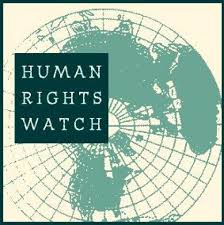No Accountability for Abuses

(Beirut) – Security and intelligence forces were the main perpetrators of human rights abuses in Iran during 2015, Human Rights Watch said today in its World Report 2016. In a sharp increase from previous years, Iran also executed more than 830 prisoners, the majority for drug-related offenses.
The authorities repeatedly clamped down on free speech and dissent. Social media users, artists, and journalists, including the Iranian-American Washington Post reporter Jason Rezaian, face harsh sentences on dubious security charges. Freedom of assembly and association also suffered in 2015, with authorities harassing and arresting students, teachers, and labor union members for peaceful activities. Dozens of political activists and human rights defenders are in detention for their peaceful or professional activities.
“Year after year, security forces act with impunity in repressing basic freedoms and committing abuses in Iran,” said Sarah Leah Whitson, Middle East director. “The authorities are long overdue in holding those responsible for human rights abuses accountable for violating Iran’s domestic and international human rights obligations.”
In the 659-page World Report 2016, its 26th edition, Human Rights Watch reviews human rights practices in more than 90 countries. In his introductory essay, Executive DirectorKenneth Roth writes that the spread of terrorist attacks beyond the Middle East and the huge flows of refugees spawned by repression and conflict led many governments to curtail rights in misguided efforts to protect their security. At the same time, authoritarian governments throughout the world, fearful of peaceful dissent that is often magnified by social media, embarked on the most intense crackdown on independent groups in recent times.
In Iran, women face discrimination in many aspects of their lives, including personal status matters such as marriage, divorce, or inheritance. In 2015, the authorities sought to introduce discriminatory laws that would restrict the employment of women in certain sectors and limit access to family planning.
Religious and ethnic minorities as well as refugees and migrant workers face discrimination in Iran in law and in practice. The government denied freedom of religion to Baha’is, Iran’s largest non-Muslim religious minority. Security forces also targeted Christian converts from Islam. The government restricted the cultural and political activities among Iran’s Kurdish, Arab, and Baluch minorities.
The estimated 2.5 to 3 million Afghan refugees and migrant workers in Iran face barriers to receiving social services. They are at higher risk than the general population of being arbitrarily questioned and sometimes detained by authorities, with little recourse to the law when abused by government officials or private parties.